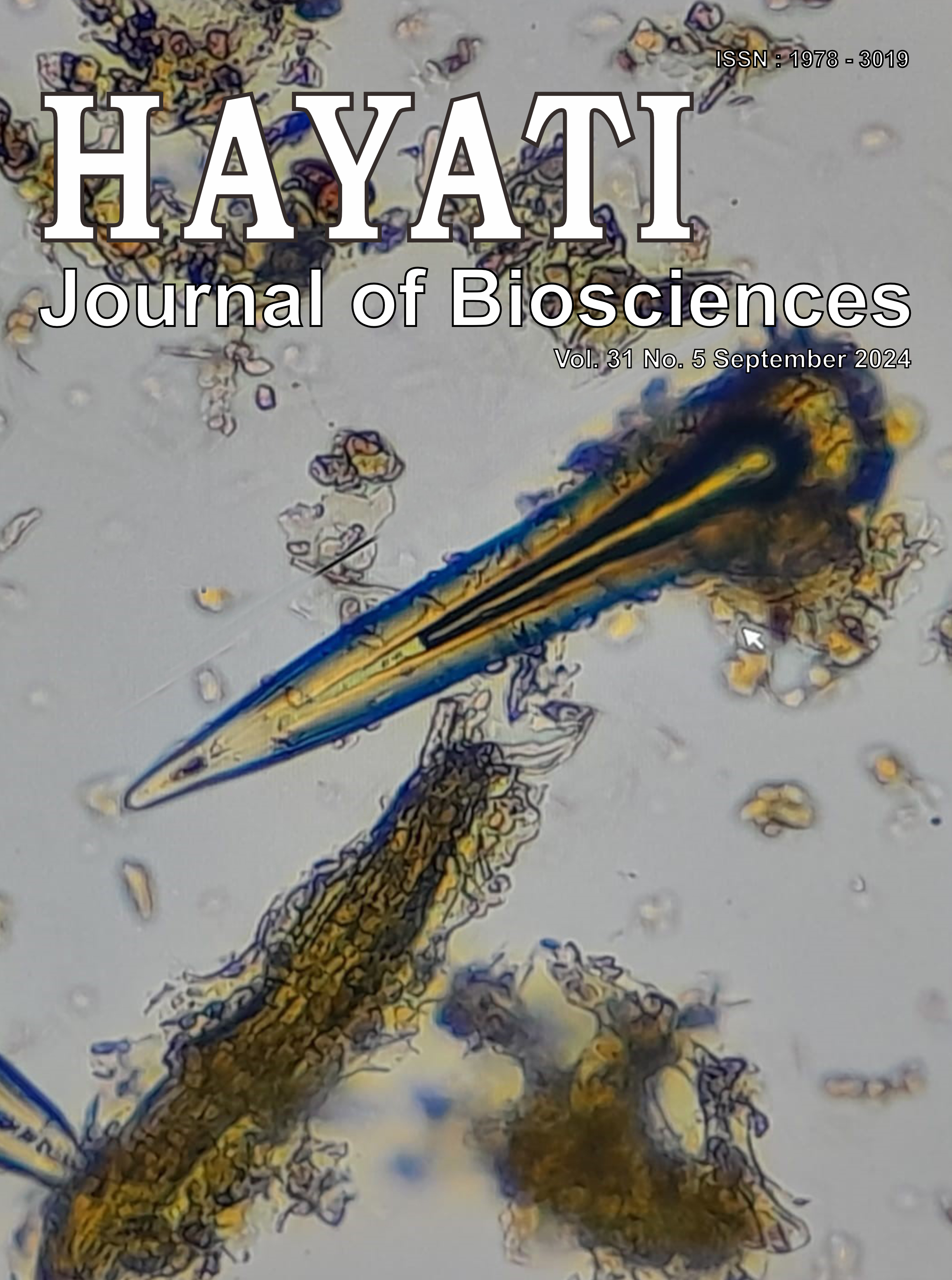Variation of Musa spp. in West Kalimantan, Indonesia, Based on rbcL Chloroplast DNA
Abstract
West Kalimantan is home to Musa spp. conservation and genetic assessment of wild banana relatives are important for future breeding purposes. The present study aims to evaluate the genetic relationship of Musa spp. in West Kalimantan by analyzing the rbcL chloroplast DNA using phylogenetic analysis. The methods in this study were sampling, DNA extraction, PCR of rbcL fragment, and data analysis. The specific primer was used to amplify the rbcL chloroplast DNA of ten accessions of Musa spp. in West Kalimantan. The results showed that the area of the rbcL region of Musa spp. in this study was estimated at 587-591 bp. It showed high variability with a conservation level A+T content of 56.95%. The rbcL sequences of Musa spp. have polymorphic sites on 13 numbers of nucleotides. The phylogenetic analysis with an ML algorithm of 35 Musa spp. from West Kalimantan and GenBank data was successfully divided into 4 main clades, and the bootstrap value was 80-81%. This study is expected beneficial for taxonomic, conservation, and banana breeding efforts.
Downloads
Copyright (c) 2024 Ari Sunandar, Hayatul Fajri, Mahwar Qurbaniah

This work is licensed under a Creative Commons Attribution-NonCommercial 4.0 International License.
HAYATI J Biosci is an open access journal and the article's license is CC-BY-NC. This license lets others distribute, remix, tweak, and build upon author's work, as long as they credit the original creation. Authors retain copyright and grant the journal/publisher non exclusive publishing rights with the work simultaneously licensed under a https://creativecommons.org/


















.png) IPB University
IPB University Department of Biology
Department of Biology The Indonesian Biological Society
The Indonesian Biological Society 

